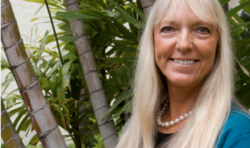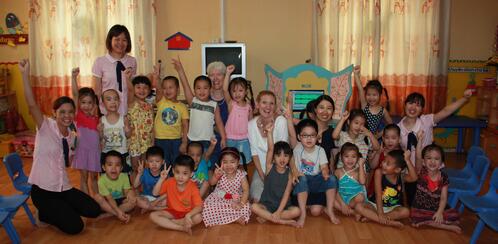"General Educational Psychology helps us to understand how people learn and how to teach effectively."
~Marie Iding, Educational Psychology Professor
Educators pursuing careers as professors, researchers, specialists, administrators, or other types of leadership positions may want to consider a Masters degree or PhD in the field of Educational Psychology. Here's a quick look at what a degree in Ed Psych can help you accomplish in your quest to become (or help create) better teachers:
The EDEP department at the UH Manoa College of Education promotes inquiry in human learning and development within the context of a diverse society. The major areas of study include human learning, human development, research methodology, statistics, measurement, and assessment and evaluation.
For EDEP students, graduate study is primarily oriented toward specific professional, educational objectives, but it is also applicable to students who find an emphasis in educational psychology congruent with their personal objectives and who wish to engage in elective study to the greatest extent possible while fulfilling Masters or PhD degree requirements.
At UH Manoa, the EDEP department is close knit and provides a lot of access to faculty; approximately 50 students are enrolled in graduate programs of study in educational psychology.
Careers
Graduate students in any EDEP program can look forward to a plethora of career opportunities. These include occupations as
-
PROFESSORS: Depending on areas of expertise, graduates could be hired in a variety of university departments such as Educational Psychology, Second Language Studies, Curriculum Studies, Teacher Education, Nursing, Disability Studies, Educational Technology, Computer Science & Information, and Business.
-
RESEARCHERS OR SPECIALISTS: Graduates could be hired as researchers or specialists in departments of education, K-12 schools, or research institutes.
-
ADMINISTRATORS: Previous graduates have also worked in administration at universities, K-12 schools, testing companies, testing & evaluation sections in departments of education, and directors of research institutes.
-
TEACHERS: Graduates who are teachers in K-12 schools have been appointed to leadership roles in areas of assessment & learning.
Sound like a good fit for you? Do you have questions?
Meet EDEP Professor, Dr. Marie Iding

-
Hometown: Santa Monica, CA Department: Educational Psychology
-
Degree: BA in Psychology from Loyola Marymount University; MA and PhD in Education from University of California, Santa Barbara
How did you become interested in educational psychology?
After completing my BA degree and without any teaching preparation, I became a 9th and 10th grade English teacher at a private alternative school in Southern California. Over half of my students had been expelled from other schools, making my job challenging and my teaching strategies largely trial-and-error. I started taking education classes at night at CSU Northridge to help me in my teaching. I grew interested in how teachers can best be prepared and in the psychology of learning and teaching, particularly in literacy and science areas. I always knew I wanted to earn a PhD, and educational psychology seemed like the perfect field.
What is your role at the COE?
I am a professor in the EDEP department. Since 1991, I have been teaching writing intensive sections of psychological foundations to pre-service teachers and others. I also teach graduate seminars on university teaching and writing for publication in education, as well as numerous classes in development and learning, educational research, and educational psychology. I particularly enjoy teaching in other parts of the world, so I've taught 22 courses in our college’s Territorial Teacher Training Program in American Sāmoa (TTTAP). I've also taught courses at the College of Micronesia, Chuuk campus. I've recently added to my international teaching experience by conducting workshops at universities in Hanoi and Ho Chi Minh City – both as part of our COE's international efforts and collaborations.

Why is general educational psychology important?
General Educational Psychology helps us to understand how people learn and how to teach effectively. I believe a basic understanding of educational psychology is useful for anyone – teachers, parents and future-parents, those involved in the business world who supervise and train employees, and those involved in human services.
What is your own philosophy of teaching?
My philosophy of teaching is a very simple one. Teaching is a process of continuous learning and growth.
What are your future plans?
To see my academic books Becoming a Professor: A Guide to a Career in Higher Education (Iding & Thomas) and A Guide to Teaching at Colleges and Universities (Iding & Thomas) published with Rowman & Littlefield. In my spare time, I also tinker with writing fiction, and it would be wonderful to see my young adult novel, Shark Catcher, about an American Sāmoan boy published, too.
Learn more about EDEP
See the EDEP section of the UH Manoa catalog, or visit the EDEP faculty directory to see research and contact information. If you are thinking about a graduate degree, download our guide;
5 Things to Do Before You Apply










